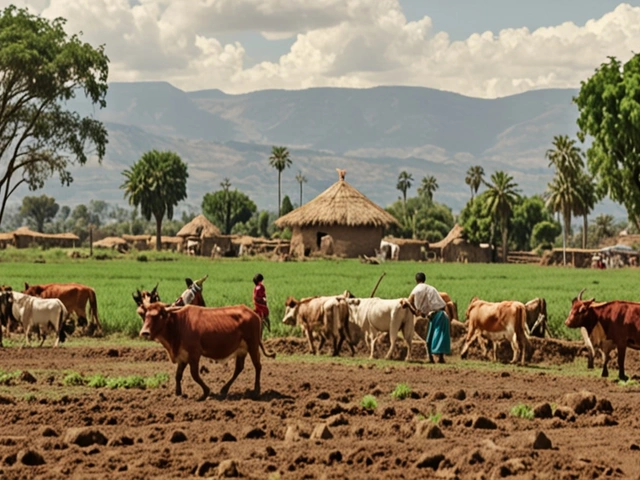Ethiopia Travel: What You Need to Know About Money, Jobs, and Life
Traveling to Ethiopia? Wondering how to manage your cash, land a job, or simply get by in Addis Ababa or elsewhere? There’s a lot more to Ethiopia than just ancient sites and coffee ceremonies. Smart travelers and expats always pay close attention to practical stuff like the cost of living, reliable ways to bring cash, and how to make ends meet while enjoying what Ethiopia has to offer.
First up: money matters. If you’re planning to bring cash into Ethiopia, stick to the declared limits—usually up to $3,000 USD before you need paperwork, but always double-check the latest local rules. Carrying too much without declaring can get you in real trouble at customs. Once inside, spend with the birr (the local currency), but don’t expect to pay with international cards everywhere—cash is king in most market stalls and taxis.
On the lookout for work or planning a longer stay? Ethiopia’s job scene may surprise you. While the tech and tourism sectors are growing, most opportunities are still in agriculture, construction, and manufacturing. Salaries vary a lot depending on your skills and the region. For example, jobs in Addis Ababa usually pay more than those in rural towns. Freelancers and digital nomads need to navigate around things like PayPal, which isn’t officially available—many freelancers use workarounds or rely on other digital platforms to get paid.
Now, about daily expenses. Renting a place isn’t sky-high compared to major cities worldwide, but costs can jump in popular neighborhoods. Expats often choose furnished flats in central Addis, while students and backpackers look to shared homes or cheaper spots in quieter areas. Food can be cheap (especially if you love injera and local fare), but imported groceries or eating out in fancy places costs a fair bit more. Public transport is affordable, but rush hours can get hectic. Small things—like knowing which rideshare app locals trust—make a big difference.
Thinking about investing or going into business? Ethiopia is buzzing with opportunities in agriculture, renewables, and light manufacturing. If you have some startup cash, sectors like tourism and tech are opening up—just be ready to wade through paperwork and get local advice. Patience and persistence matter more here than flashy presentations.
Staying safe and blending in is also part of smart travel. Addis Ababa is generally friendly, but like any big city, watch your belongings and stay alert in crowded places. Learning a few phrases in Amharic goes a long way when making friends or cracking a deal at the local market. And yes, lots of young Ethiopians speak English, especially in business settings or around universities.
In short, traveling—or living—in Ethiopia works best when you plan for the small stuff: cash limits, job markets, cost of living, and everyday safety. Keep it simple, stay curious, and use every chance to experience the real Ethiopia beyond the guidebooks.
Exploring the Beauty of Ethiopia: A Traveler’s Guide to Its Unique Attractions
Ethiopia, a country rich in history, culture, and natural beauty, attracts travelers from all around the world. From the ancient rock-hewn churches of Lalibela to the bustling streets of Addis Ababa, Ethiopia offers a myriad of experiences. This article delves into why Ethiopia is a must-visit destination, highlighting its unique attractions, vibrant culture, and breathtaking landscapes. Whether you’re an adventure seeker, a history buff, or someone looking to immerse themselves in new cultures, Ethiopia has something to offer.
Read More






